The Microbiology Society Annual Conference 2019 took place between Monday 8 April - Thursday 11 April and was held at the ICC Belfast (formerly Belfast Waterfront), UK.
The Society's Annual Conference attracted over 1,400 attendees for the UK's largest annual gathering of microbiologists. You can see what took place at Conference on YouTube and in the image gallery below.
Annual Conference is designed to cover the breadth of microbiology research and its comprehensive scientific programme had over 30 sessions taking place over four days in a range of formats, including:

Image: surangaw/Thinkstock.
Whilst teaching microbiology in higher education, you may come across challenges such as keeping up to date with the current teaching environment or ensuring students are engaged. During this interactive symposium, delegates will have the opportunity to be part of a network, learn best practices and gain insight and information on issues affecting the teaching landscape. The symposium will give delegates the opportunity to discuss teaching microbiology in higher education and troubleshoot individual challenges. The symposium will discuss elements of the framework of teaching, including degree structures and benchmarking. Topics to be explored include transitioning from schools into higher education and obstacles within postgraduate teaching. Delegates will also benefit from practical examples of teaching and preparing for teaching students as well as managing student expectations when it comes to independent learning. The day will conclude with the opportunity for delegates to share how the Society can better support teaching-active members. This symposium is aimed at anyone involved or interested in teaching in higher education and therefore is not restricted by career stage.
James Edwards (University of Plymouth), Tadhg Ó'Cróinín (University College Dublin), Nicola Crewe (University of Lincoln), Alison Graham (University of Newcastle), Emma Hayhurst (University of South Wales)
Whilst teaching microbiology in higher education, you may come across challenges such as keeping up to date with the current teaching environment or ensuring students are engaged. During this interactive symposium, delegates will have the opportunity to be part of a network, learn best practices and gain insight and information on issues affecting the teaching landscape. The symposium will give delegates the opportunity to discuss teaching microbiology in higher education and troubleshoot individual challenges. The symposium will discuss elements of the framework of teaching, including degree structures and benchmarking. Topics to be explored include transitioning from schools into higher education and obstacles within postgraduate teaching. Delegates will also benefit from practical examples of teaching and preparing for teaching students as well as managing student expectations when it comes to independent learning. The day will conclude with the opportunity for delegates to share how the Society can better support teaching-active members. This symposium is aimed at anyone involved or interested in teaching in higher education and therefore is not restricted by career stage.
James Edwards (University of Plymouth), Tadhg Ó'Cróinín (University College Dublin), Nicola Crewe (University of Lincoln), Alison Graham (University of Newcastle), Emma Hayhurst (University of South Wales)
If you’ve recently been promoted to a laboratory leadership role, or are due to do so in the near future, this session is aimed at helping you to understand what is required of a laboratory leader. The day will comprise a series of interactive workshops taking delegates through key skills involved with running a successful research group. These include – Managing Projects, Managing Assets, Health and Safety, and Managing People. By the end of the day, delegates will have a clear understanding of the basics of essential skills, and have the chance to discuss challenges in laboratory management with course leaders and other attendees at a similar career stage.
Microbiology Society
The prediction of a perfect storm for food-security by Prof John Beddington is now well recited. The United Kingdom has recently reported a 19% fall in agricultural revenue, which was the third largest fall across the EU; additionally, since 2000 agricultural productivity in the UK has plateaued. Elucidating sustainable methods of agriculture that reliably produce high quality and high yielding crops and safe meat using environmentally considerate management is of significant economic, political, societal and environmental interest. The diverse microbial communities associated with crops and livestock significantly influence food safety, yield and quality, as is most obviously demonstrated by pests and disease. Novel and rapid pathogen detection methods are critical to the reduction of indiscriminate antimicrobial use in agriculture which fosters the spread of resistance. There is mounting evidence that microbial species also contribute positively to the safety, health and development of crops and animals, with considerable commercial interest in product formulation. While it seems clear that livestock and crop microbiota play a role in health, the extent and variance of this role across crops and animals, and how these microbiota components interact, is not clear. Elucidating the influence of animal and crop microbiota on the health and safety of agricultural systems is a novel and breaking area analogous to the burgeoning area seeking to understand how the human microbiome affects health. This session aims to highlight work to understand, control and harness agricultural microbiota for increased food security and sustainability, and spans livestock health, food safety, and crop health. Offered papers relating to all microbiological aspects of food security, including animal and plant pathogen spread, detection, prevention (including vaccination), microbiome manipulation and antimicrobial resistance will be considered for presentation within the symposium.
Matthew Goddard (University of Lincoln, UK), Stefania Spano (University of Aberdeen, UK); Martin Welch (University of Cambridge), Sheila Patrick (Queen's University Belfast, UK)
Influenza viruses, Nipah virus and the MERS coronavirus are examples of current emerging viral threats to human health, all of which have natural reservoirs in wild animal species. In addition, many economically important livestock populations such as horses, swine and poultry are similarly at risk from spill-over virus infections from wild animal populations such as aquatic birds or bats. The consequences of species jumps can be severe, with often devastating pathology resulting from a lack of existing herd immunity. Essential virus-host interactions restrict the host range for the majority of viruses, with absolute dependency upon cellular proteins for aspects of their replicative cycles. Thus, viruses must adapt and gain the ability to extend this host range if they are to either sporadically or persistently infect novel host species. It is therefore critical to understand the mechanisms of adaptation and the rate of viral evolution to enable this adaptation to a new host environment from a “One Health” perspective, enabling us to predict and prepare for new global viral outbreaks. This symposium will bring together the opinions and hard data from front runners in the field studying virus host switching events, examining the interplay between hosts, viral evolution rates, and molecular changes important for efficient virus replication within new host species.
Holly Shelton (Pirbright Institute, UK), Nicolas Locker (University of Surrey, UK), Stephen Griffin (University of Leeds, UK)
The advent of cheap DNA sequencing techniques has enabled the comprehensive analysis of the microbial species present in a wide range of ecological contexts (the microbiomes). However, we understand little of the metabolic interactions between the different microbes in these communities. Both metabolomics and metabolic modeling can help us to understand these interactions. This session will demonstrate how these different concepts and technologies may be combined to address such questions as: Why do microbes export metabolites? What are the advantages of cooperation between microbial species and how did cooperativity evolve? What is the metabolic basis of interactions between microbes and the multicellular organisms that they grow in, on, or around?
Martin Welch (University of Cambridge, UK), Steve Oliver (University of Cambridge, UK), Nicola Holden (James Hutton Institute, UK), Elinor Thompson (University of Greenwich, UK)
Microbial Dark Matter has become a popular term to describe the vast uncultured majority of microorganisms in the environment that are currently only known through metabarcoding and metagenome studies. These environmental ‘DNA blueprints’ offer considerable potential to advance our understanding of microbial evolution, diversity and ecosystem functioning, and have stimulated a new wave of microbiology. Major priorities include developing novel approaches to cultivate the previously unknown or ‘uncultured’, and establish new model systems to determine their biology. The rapidly growing recognition of the extent and importance of the uncultured majority demonstrates the substantial progress that has been made, and the enormous potential for future microbiological research. With this session we will aim to bring together microbiologists interested in exploring the vast uncultured majority of microorganisms in the biosphere. We will also aim to attract microbiologists who use culture-based approaches in the hope of stimulating a lively culture-dependent vs. culture-independent discussion.
Michael Cunliffe (University of Plymouth, UK), Alison Smith (University of Cambridge, UK)
The ‘hygiene hypothesis’ proposes that the cause of the recent rapid rise of allergic and autoimmune diseases could be due to a lower exposure to infectious agents including parasites in early childhood. Recent investigations have demonstrated that specific microorganisms, especially parasites, bacteria and viruses, are overlooked or absent in the gut microbiome of humans in developed countries, but the same microbes are found in abundance in similar studies in rural or underdeveloped areas. Which are these organisms and what are their roles in health and disease? How has industrialization molded the gut microbiome and what are the consequences of such changes? Can therapeutic strategies be developed using microorganisms that have been traditionally considered as infectious agents? Should we abandon or revitalize the Hygiene Hypothesis? This session will attempt to tackle some of these questions and explore future aspects in the field.
Anastasios Tsaousis (Unversity of Kent, UK), Eleni Gentekaki (Mae Fah Luang University, Thailand)
While a large number of microbes peacefully inhabit our body, some have evolved to attack the host and become pathogens. Pathogens are responsible of around 25% of global deaths and the treatment of infectious disease represents a significant economic burden in our society. In addition, the raise of antimicrobial resistance among pathogens is often making treatment very difficult. A deeper understanding of specific mechanisms of pathogenesis is needed to develop novel therapeutic strategies. Prokaryotic and eukaryotic pathogens and their hosts are engaged in a continuous crosstalk, which involves thousands of molecules and signalling pathways. The session will cover various strategies of pathogen offence and host defence. Presentations will focus on different virulence mechanisms (e.g., bacterial effectors, bacterial toxins, fungal virulence factors) and pathogen modulation of host functions, as well as host mechanisms of defence and immunity. Abstracts relating to all aspects of microbial pathogenesis, pathogen attack and host response will be considered for presentation as posters, flash posters or short talks within the symposium.
Stefania Spano (University of Aberdeen, UK), Sabine Totemeyer (University of Nottingham, UK), Robert Fagan (University of Sheffield, UK), Catarina Gadelha (University of Nottingham, UK)
Ever since the pioneering work of Jenner in the 1790s to protect against smallpox, vaccination has served as a valuable weapon in the disease control armoury, offering the potential to not only prevent but even eradicate bacterial disease. Moreover, in a time of growing antibacterial and multi-drug resistance, and with no immediate reprise on the horizon via the antibiotic pipeline, alternative solutions such as vaccination could make a critical contribution to resolving the AMR crisis. Such possibilities are driven by the huge advances that have been made in vaccine technologies and antigen discovery, combined with a better understanding of bacterial pathogenesis and of the host immune response. This session aims to bring together experts in the field to discuss the current status of vaccine development for important bacterial pathogens, new research directions, and the challenges and ambitions for the future. The session will consider topical issues across the breadth of the vaccine development process including: 1) recent advances in antigen discovery for bacterial pathogens; 2) vaccine immunology and current challenges in generating effective mucosal immunity; 3) translating potential candidates to a successful vaccine; and 4) the challenges that lie ahead in public perception of vaccines and potential impacts of this issue on vaccine uptake.
Angela Nobbs (University of Bristol, UK), Jody Winter (Nottingham Trent University, UK)
If you’ve recently been promoted to a laboratory leadership role, or are due to do so in the near future, this session is aimed at helping you to understand what is required of a laboratory leader. The day will comprise a series of interactive workshops taking delegates through key skills involved with running a successful research group. These include – Managing Projects, Managing Assets, Health and Safety, and Managing People. By the end of the day, delegates will have a clear understanding of the basics of essential skills, and have the chance to discuss challenges in laboratory management with course leaders and other attendees at a similar career stage.
Microbiology Society
The prediction of a perfect storm for food-security by Prof John Beddington is now well recited. The United Kingdom has recently reported a 19% fall in agricultural revenue, which was the third largest fall across the EU; additionally, since 2000 agricultural productivity in the UK has plateaued. Elucidating sustainable methods of agriculture that reliably produce high quality and high yielding crops and safe meat using environmentally considerate management is of significant economic, political, societal and environmental interest. The diverse microbial communities associated with crops and livestock significantly influence food safety, yield and quality, as is most obviously demonstrated by pests and disease. Novel and rapid pathogen detection methods are critical to the reduction of indiscriminate antimicrobial use in agriculture which fosters the spread of resistance. There is mounting evidence that microbial species also contribute positively to the safety, health and development of crops and animals, with considerable commercial interest in product formulation. While it seems clear that livestock and crop microbiota play a role in health, the extent and variance of this role across crops and animals, and how these microbiota components interact, is not clear. Elucidating the influence of animal and crop microbiota on the health and safety of agricultural systems is a novel and breaking area analogous to the burgeoning area seeking to understand how the human microbiome affects health. This session aims to highlight work to understand, control and harness agricultural microbiota for increased food security and sustainability, and spans livestock health, food safety, and crop health. Offered papers relating to all microbiological aspects of food security, including animal and plant pathogen spread, detection, prevention (including vaccination), microbiome manipulation and antimicrobial resistance will be considered for presentation within the symposium.
Matthew Goddard (University of Lincoln, UK), Stefania Spano (University of Aberdeen, UK); Martin Welch (University of Cambridge), Sheila Patrick (Queen's University Belfast, UK)
Influenza viruses, Nipah virus and the MERS coronavirus are examples of current emerging viral threats to human health, all of which have natural reservoirs in wild animal species. In addition, many economically important livestock populations such as horses, swine and poultry are similarly at risk from spill-over virus infections from wild animal populations such as aquatic birds or bats. The consequences of species jumps can be severe, with often devastating pathology resulting from a lack of existing herd immunity. Essential virus-host interactions restrict the host range for the majority of viruses, with absolute dependency upon cellular proteins for aspects of their replicative cycles. Thus, viruses must adapt and gain the ability to extend this host range if they are to either sporadically or persistently infect novel host species. It is therefore critical to understand the mechanisms of adaptation and the rate of viral evolution to enable this adaptation to a new host environment from a “One Health” perspective, enabling us to predict and prepare for new global viral outbreaks. This symposium will bring together the opinions and hard data from front runners in the field studying virus host switching events, examining the interplay between hosts, viral evolution rates, and molecular changes important for efficient virus replication within new host species.
Holly Shelton (Pirbright Institute, UK), Nicolas Locker (University of Surrey, UK), Stephen Griffin (University of Leeds, UK)
The advent of cheap DNA sequencing techniques has enabled the comprehensive analysis of the microbial species present in a wide range of ecological contexts (the microbiomes). However, we understand little of the metabolic interactions between the different microbes in these communities. Both metabolomics and metabolic modeling can help us to understand these interactions. This session will demonstrate how these different concepts and technologies may be combined to address such questions as: Why do microbes export metabolites? What are the advantages of cooperation between microbial species and how did cooperativity evolve? What is the metabolic basis of interactions between microbes and the multicellular organisms that they grow in, on, or around?
Martin Welch (University of Cambridge, UK), Steve Oliver (University of Cambridge, UK), Nicola Holden (James Hutton Institute, UK), Elinor Thompson (University of Greenwich, UK)
Microbial Dark Matter has become a popular term to describe the vast uncultured majority of microorganisms in the environment that are currently only known through metabarcoding and metagenome studies. These environmental ‘DNA blueprints’ offer considerable potential to advance our understanding of microbial evolution, diversity and ecosystem functioning, and have stimulated a new wave of microbiology. Major priorities include developing novel approaches to cultivate the previously unknown or ‘uncultured’, and establish new model systems to determine their biology. The rapidly growing recognition of the extent and importance of the uncultured majority demonstrates the substantial progress that has been made, and the enormous potential for future microbiological research. With this session we will aim to bring together microbiologists interested in exploring the vast uncultured majority of microorganisms in the biosphere. We will also aim to attract microbiologists who use culture-based approaches in the hope of stimulating a lively culture-dependent vs. culture-independent discussion.
Michael Cunliffe (University of Plymouth, UK), Alison Smith (University of Cambridge, UK)
The ‘hygiene hypothesis’ proposes that the cause of the recent rapid rise of allergic and autoimmune diseases could be due to a lower exposure to infectious agents including parasites in early childhood. Recent investigations have demonstrated that specific microorganisms, especially parasites, bacteria and viruses, are overlooked or absent in the gut microbiome of humans in developed countries, but the same microbes are found in abundance in similar studies in rural or underdeveloped areas. Which are these organisms and what are their roles in health and disease? How has industrialization molded the gut microbiome and what are the consequences of such changes? Can therapeutic strategies be developed using microorganisms that have been traditionally considered as infectious agents? Should we abandon or revitalize the Hygiene Hypothesis? This session will attempt to tackle some of these questions and explore future aspects in the field.
Anastasios Tsaousis (Unversity of Kent, UK), Eleni Gentekaki (Mae Fah Luang University, Thailand)
While a large number of microbes peacefully inhabit our body, some have evolved to attack the host and become pathogens. Pathogens are responsible of around 25% of global deaths and the treatment of infectious disease represents a significant economic burden in our society. In addition, the raise of antimicrobial resistance among pathogens is often making treatment very difficult. A deeper understanding of specific mechanisms of pathogenesis is needed to develop novel therapeutic strategies. Prokaryotic and eukaryotic pathogens and their hosts are engaged in a continuous crosstalk, which involves thousands of molecules and signalling pathways. The session will cover various strategies of pathogen offence and host defence. Presentations will focus on different virulence mechanisms (e.g., bacterial effectors, bacterial toxins, fungal virulence factors) and pathogen modulation of host functions, as well as host mechanisms of defence and immunity. Abstracts relating to all aspects of microbial pathogenesis, pathogen attack and host response will be considered for presentation as posters, flash posters or short talks within the symposium.
Stefania Spano (University of Aberdeen, UK), Sabine Totemeyer (University of Nottingham, UK), Robert Fagan (University of Sheffield, UK), Catarina Gadelha (University of Nottingham, UK)
Ever since the pioneering work of Jenner in the 1790s to protect against smallpox, vaccination has served as a valuable weapon in the disease control armoury, offering the potential to not only prevent but even eradicate bacterial disease. Moreover, in a time of growing antibacterial and multi-drug resistance, and with no immediate reprise on the horizon via the antibiotic pipeline, alternative solutions such as vaccination could make a critical contribution to resolving the AMR crisis. Such possibilities are driven by the huge advances that have been made in vaccine technologies and antigen discovery, combined with a better understanding of bacterial pathogenesis and of the host immune response. This session aims to bring together experts in the field to discuss the current status of vaccine development for important bacterial pathogens, new research directions, and the challenges and ambitions for the future. The session will consider topical issues across the breadth of the vaccine development process including: 1) recent advances in antigen discovery for bacterial pathogens; 2) vaccine immunology and current challenges in generating effective mucosal immunity; 3) translating potential candidates to a successful vaccine; and 4) the challenges that lie ahead in public perception of vaccines and potential impacts of this issue on vaccine uptake.
Angela Nobbs (University of Bristol, UK), Jody Winter (Nottingham Trent University, UK)
A career in academia can be demanding, with many obstacles arising including grant proposals and job applications; dealing with research projects that often take meandering paths; and working in what is generally a competitive field full of fixed term contracts. Delegates will be presented with a toolkit for staying resilient in academia, before learning from the experience of those who have successfully negotiated challenges in their academic careers. This session is aimed at early career researchers and is also relevant to those who are considering changed fields, as moving fields also requires the ability to adapt to change.
Microbiology Society
The Annual Meeting of Protistology-UK: a symposium on the origins of eukaryotes. The sessions cover phylogenomics & evolutionary biology, cell biology/architecture and chromosome biology, as well as the origins of mitochondria and plastids. Rapid progress is being made in identifying candidate archaeal taxa related to the original ‘host’ component, and in parallel our understanding of the diversity of protists is helping to reshape our view of what the last eukaryotic ancestor resembled, and where the root in the eukaryotic tree lies.
Gareth Bloomfield (University of Cambridge, UK), Anastasios Tsaousis (University of Kent, UK), Elinor Thompson (University of Greenwich), Alison Smith (University of Cambridge, UK)
The prediction of a perfect storm for food-security by Prof John Beddington is now well recited. The United Kingdom has recently reported a 19% fall in agricultural revenue, which was the third largest fall across the EU; additionally, since 2000 agricultural productivity in the UK has plateaued. Elucidating sustainable methods of agriculture that reliably produce high quality and high yielding crops and safe meat using environmentally considerate management is of significant economic, political, societal and environmental interest. The diverse microbial communities associated with crops and livestock significantly influence food safety, yield and quality, as is most obviously demonstrated by pests and disease. Novel and rapid pathogen detection methods are critical to the reduction of indiscriminate antimicrobial use in agriculture which fosters the spread of resistance. There is mounting evidence that microbial species also contribute positively to the safety, health and development of crops and animals, with considerable commercial interest in product formulation. While it seems clear that livestock and crop microbiota play a role in health, the extent and variance of this role across crops and animals, and how these microbiota components interact, is not clear. Elucidating the influence of animal and crop microbiota on the health and safety of agricultural systems is a novel and breaking area analogous to the burgeoning area seeking to understand how the human microbiome affects health. This session aims to highlight work to understand, control and harness agricultural microbiota for increased food security and sustainability, and spans livestock health, food safety, and crop health. Offered papers relating to all microbiological aspects of food security, including animal and plant pathogen spread, detection, prevention (including vaccination), microbiome manipulation and antimicrobial resistance will be considered for presentation within the symposium.
Matthew Goddard (University of Lincoln, UK), Stefania Spano (University of Aberdeen, UK); Martin Welch (University of Cambridge), Sheila Patrick (Queen's University Belfast, UK)
Influenza viruses, Nipah virus and the MERS coronavirus are examples of current emerging viral threats to human health, all of which have natural reservoirs in wild animal species. In addition, many economically important livestock populations such as horses, swine and poultry are similarly at risk from spill-over virus infections from wild animal populations such as aquatic birds or bats. The consequences of species jumps can be severe, with often devastating pathology resulting from a lack of existing herd immunity. Essential virus-host interactions restrict the host range for the majority of viruses, with absolute dependency upon cellular proteins for aspects of their replicative cycles. Thus, viruses must adapt and gain the ability to extend this host range if they are to either sporadically or persistently infect novel host species. It is therefore critical to understand the mechanisms of adaptation and the rate of viral evolution to enable this adaptation to a new host environment from a “One Health” perspective, enabling us to predict and prepare for new global viral outbreaks. This symposium will bring together the opinions and hard data from front runners in the field studying virus host switching events, examining the interplay between hosts, viral evolution rates, and molecular changes important for efficient virus replication within new host species.
Holly Shelton (Pirbright Institute, UK), Nicolas Locker (University of Surrey, UK), Stephen Griffin (University of Leeds, UK)
The advent of cheap DNA sequencing techniques has enabled the comprehensive analysis of the microbial species present in a wide range of ecological contexts (the microbiomes). However, we understand little of the metabolic interactions between the different microbes in these communities. Both metabolomics and metabolic modeling can help us to understand these interactions. This session will demonstrate how these different concepts and technologies may be combined to address such questions as: Why do microbes export metabolites? What are the advantages of cooperation between microbial species and how did cooperativity evolve? What is the metabolic basis of interactions between microbes and the multicellular organisms that they grow in, on, or around?
Martin Welch (University of Cambridge, UK), Steve Oliver (University of Cambridge, UK), Nicola Holden (James Hutton Institute, UK), Elinor Thompson (University of Greenwich, UK)
Much of our current focus is towards investigating how microbial pathogens cause disease in humans. However, microbial pathogenesis goes far beyond the infections of humans, as microbes are able to infect a wide range of host species from economically important animals such as fish, crustaceans and domesticated animals through to amoebae and insects and everything in between. In order to be able to achieve this, microbes have evolved a wide range of virulence mechanisms that promote their colonisation, survival and pathogenesis in these diverse environments. Recent technological advances are allowing a greater understanding of these host-pathogen interactions through genomics, epidemiology and molecular pathogenesis. This session provides the opportunity for researchers in this sometimes-overlooked diverse area to come together and present their latest research findings. The session will provide a platform to present in the areas of (i) molecular microbiology, (ii) molecular pathogenesis of host-pathogen interactions (iii) molecular epidemiology (iv) genomics (v) zoonosis.
Nick Waterfield (University of Warwick, UK), Jonathan Shaw (University of Sheffield, UK)
Ever since the pioneering work of Jenner in the 1790s to protect against smallpox, vaccination has served as a valuable weapon in the disease control armoury, offering the potential to not only prevent but even eradicate bacterial disease. Moreover, in a time of growing antibacterial and multi-drug resistance, and with no immediate reprise on the horizon via the antibiotic pipeline, alternative solutions such as vaccination could make a critical contribution to resolving the AMR crisis. Such possibilities are driven by the huge advances that have been made in vaccine technologies and antigen discovery, combined with a better understanding of bacterial pathogenesis and of the host immune response. This session aims to bring together experts in the field to discuss the current status of vaccine development for important bacterial pathogens, new research directions, and the challenges and ambitions for the future. The session will consider topical issues across the breadth of the vaccine development process including: 1) recent advances in antigen discovery for bacterial pathogens; 2) vaccine immunology and current challenges in generating effective mucosal immunity; 3) translating potential candidates to a successful vaccine; and 4) the challenges that lie ahead in public perception of vaccines and potential impacts of this issue on vaccine uptake.
Angela Nobbs (University of Bristol, UK), Jody Winter (Nottingham Trent University, UK)
This forum includes offered papers on any area and any organism relevant to environmental, ecological, applied and industrial microbiology, including (non-human) host–microbe communities and interactions, marine and freshwater microbiology, soil and geomicrobiology, air-, cryo- and extremophile microbiology, climate change, biotechnology, bio-processing and bio-engineering, food microbiology, and other applied and industrial microbial processes, including microbe-mediated biodegradation and bioremediation.
Nicola Holden (The James Hutton Institute, UK) and Michael Cunliffe (University of Plymouth, UK)
The Annual Meeting of Protistology-UK: a symposium on the origins of eukaryotes. The sessions cover phylogenomics & evolutionary biology, cell biology/architecture and chromosome biology, as well as the origins of mitochondria and plastids. Rapid progress is being made in identifying candidate archaeal taxa related to the original ‘host’ component, and in parallel our understanding of the diversity of protists is helping to reshape our view of what the last eukaryotic ancestor resembled, and where the root in the eukaryotic tree lies.
Gareth Bloomfield (University of Cambridge, UK), Anastasios Tsaousis (University of Kent, UK), Elinor Thompson (University of Greenwich), Alison Smith (University of Cambridge, UK)
Offered papers on all aspects of the genes and genomes of microbes (prokaryotes and eukaryotes) and their mobile elements will be considered, including their sequencing, transcription, translation, regulation, chromosome dynamics, gene transfer, population genetics and evolution, taxonomy and systematics, comparative genomics, metagenomics, bioinformatics, and synthetic biology.
Sarah Kuehne (University of Birmingham) and Ed Louis (University of Leicester, UK)
This forum will consider offered papers on all aspects of microbial (prokaryotic and eukaryotic) metabolism and physiology, including fundamental research on the biochemistry and structure of cells, cell growth and division, cell architecture and differentiation, synthesis and transport of macromolecules, ions and small molecules and the cell cycle; but also on the role of physiology in microbial engineering, signalling and communication, sensing and cellular responses, the molecular mechanisms behind these phenomena and their potential applications.
Gillian Fraser (University of Cambridge, UK) and Duncan Wilson (University of Aberdeen, UK)
Much of our current focus is towards investigating how microbial pathogens cause disease in humans. However, microbial pathogenesis goes far beyond the infections of humans, as microbes are able to infect a wide range of host species from economically important animals such as fish, crustaceans and domesticated animals through to amoebae and insects and everything in between. In order to be able to achieve this, microbes have evolved a wide range of virulence mechanisms that promote their colonisation, survival and pathogenesis in these diverse environments. Recent technological advances are allowing a greater understanding of these host-pathogen interactions through genomics, epidemiology and molecular pathogenesis. This session provides the opportunity for researchers in this sometimes-overlooked diverse area to come together and present their latest research findings. The session will provide a platform to present in the areas of (i) molecular microbiology, (ii) molecular pathogenesis of host-pathogen interactions (iii) molecular epidemiology (iv) genomics (v) zoonosis.
Nick Waterfield (University of Warwick, UK), Jonathan Shaw (University of Sheffield, UK)
This workshop will involve a range of clinical virology cases or short papers which relate to studies relevant to clinical virology network. Different aspects of clinical virology will be covered, including differential diagnosis of encephalitis, management of hepatitis, diversity of rotavirus sequences, and diagnosis of respiratory infections. Contributions from early career researchers are particularly welcomed.
Stephen Winchester (Frimley Park Hospital NHS Foundation Trust, UK) and Tamyo Mbisa (Public Health England, UK)
The innate immune system represents the first line of defence against infection for all living organisms. In recent years, our knowledge of the battle between viruses and innate immunity has increased substantially. This workshop will highlight novel cellular defence mechanisms and uncover the myriad evasion strategies viruses use to overcome these barriers to replication. The workshop will cover the breadth of virology – human, non-human animal, plant and bacterial where appropriate – with contributions from early career researchers particularly welcomed.
Martina Scallan (University College Cork) and Kate Bishop (The Francis Crick Institute)
The assembly of the virus particle, egress from the cell, receptor binding and uncoating are critical events in the life cycle of all viruses. This workshop will focus on the molecular mechanisms involved in these processes, and the interplay between virus and host. The workshop will cover the breadth of virology – human, non-human animal, plant and bacterial – with contributions from early career researchers particularly welcomed.
Gill Elliott (University of Surrey) and Colin Crump (University of Cambridge)
As populations increase, sustainability in life as we know it presents a challenge: energy, water, food are compromised with concomitant threat of pollution and damage to ecosystem function. Microbes offer a wide range of solutions and we are approaching an exciting time where the tools and the knowledge are in place to make best use them (microbial resource management), not only to provide solutions such as bioplastics from waste feedstocks, but also facilitate remediation to deliver the safe sustainable, biobased circular economy.
John Milledge (University of Greenwich, UK), Christine Edwards (Robert Gordon University, UK), Edward Louis (University of Leicester, UK)
This session will involve a range of clinical virology cases which relate to studies relevant to the Clinical Virology Network (CVN).
Stephen Winchester (Frimley Park Hospital NHS Foundation Trust, UK)
Mammalian models often provide the standard systems for disease research since they reproduce cell systems equivalent to humans. Although these approaches provide a suitable translation to human systems, they are hard to manipulate, provide significant costs, and may raise ethical considerations regarding the use of animals for research. To address some of these issues, alternative models such as microbial systems or organoid cultures are increasingly being considered to reduce or replace the use of animals in research – an approach called ‘3Rs’ (Replacement, Reduction or Refinement).
Microbial systems provide a tractable model enabling a range of experimental procedures and approaches that are often not possible in mammalian systems. These include the ability to: (1) rapidly ablate single and multiple genes or to introduce specific mutations in a single isogenic cell line to characterise change in cell function; (2) to carry out pharmacogenetic screens to determine mechanism of action of drugs or bioactive natural products; and (3) to produce multiple grams of isogenic cells for analysis of cell signalling, development, acute cell response, metabolomics or organelle function. These and other methodologies provide unique research approaches to enhance the process of discovery.
Organoid cell culture also provides a model for research where self-organising stem cells are embedding in a 3-dimensional matrix and allowed to form organotypic structures. These mimic the architecture, physiology and pathophysiology of the original tissue and enable precise and functionally relevant research questions to be asked. Organoids have been used in the field of virology to ask new questions about host-virus interactions. Organoid models have also been employed for pre-clinical evaluation of vaccines and therapeutics, thereby contributing to “replacement”.
This session will (a) demonstrated the breadth of research that microbial models are currently being used for in 3Rs research relating to the study of diseases, and (b) the use of organoid models in viral research. The session will include eukaryotic models such as the social amoeba Dictyostelium and yeast, and organoid models such as the brain, gut and lung. Talks will focus on the innovative use of these models to enhance our understanding of the basic cell and molecular biology of a range of diseases, from the analysis of the fundamental cellular role of key proteins involved in complex neurodegenerative diseases, to the analysis of human proteins using microbial models, to the use of these models in compound screening for drug discovery. The session will therefore provide an excellent introduction to the use of microbial and organoid animal replacement/reduction models in medical and veterinary research to improve our understanding of disease.
Robin SB Williams (Royal Holloway, UK), Pip Beard (Pirbright Institute, UK)
Much of our current focus is towards investigating how microbial pathogens cause disease in humans. However, microbial pathogenesis goes far beyond the infections of humans, as microbes are able to infect a wide range of host species from economically important animals such as fish, crustaceans and domesticated animals through to amoebae and insects and everything in between. In order to be able to achieve this, microbes have evolved a wide range of virulence mechanisms that promote their colonisation, survival and pathogenesis in these diverse environments. Recent technological advances are allowing a greater understanding of these host-pathogen interactions through genomics, epidemiology and molecular pathogenesis. This session provides the opportunity for researchers in this sometimes-overlooked diverse area to come together and present their latest research findings. The session will provide a platform to present in the areas of (i) molecular microbiology, (ii) molecular pathogenesis of host-pathogen interactions (iii) molecular epidemiology (iv) genomics (v) zoonosis.
Nick Waterfield (University of Warwick, UK), Jonathan Shaw (University of Sheffield, UK)
The discovery of the microbial pangenome has been one of the most fundamentally important discoveries in the field of microbial genomics and evolution. The concept that any given microbial species has a core genome that can account for 50% or less of its core genetic content has diven research focussing on the role the accessory genome plays in microbial evolution, and on the nature of the pangenome across a myriad of microbial species and genera. This symposium will provide a first ever synposis of the field of microbial pangenome research, and will be of interest to anyone conducting research with microbial genomes and research in microbial evolutionary genomics. The symposium will focus on the impact the accessory genome can have in generating defined phenotypic clusters within a species. It will also delve into the controversy over whether selection acts upon the pangenome or its generation and maintenance is a result of neutral evolution. The symposium will also investigate the fascinating and contentious issue of pangenomes and horizontal gene transfer in eukaryotes. And finally the symposium will look at newly developed tools for the advanced study of the microbial pangenome.
Alan McNally (Birmingham, UK), Rob Jackson (University of Reading, UK), Samuel Sheppard (University of Bath, UK); Richard Harrison (NIAB EMR, UK)
The availability of antiviral small molecules and vaccines has historically lagged behind those targeting bacteria. Accordingly, the public health issues represented by both common and emerging virus infections are considerable, with effective treatments lacking in many cases. Research aimed at translating laboratory findings into either novel or improved anti-viral strategies is therefore a priority. This workshop will highlight ongoing research into burgeoning therapies for important human and animal viral pathogens, encompassing all stages of therapeutic development ranging from the test tube to in vivo studies. This year we are delighted to announce that our longer workshop sessions will accommodate plenary speakers for the first time. Our speaker for the Antivirals and Vaccines Virology workshop will be Stuart Cockerill (Reviral Ltd, UK) who will present on 'Design, identification and clinical progression of RV521, an inhibitor of respiratory syncytial virus fusion'. We look forward to welcoming Stuart Cockerill and all interested delegates to the session.
Stephen Griffin (University of Leeds, UK) and Silke Schepelmann (National Institute for Biological Standards and Control, UK)
The existence of every organism rests on accurate control of gene expression, with each step of the mRNA life cycle being an opportunity for regulation. Therefore the control of expression of both virus and host RNA during virus infection is fundamental to the life cycle of all viruses. Indeed, virus replication, gene expression and manipulation of the host environment all rest upon RNA production. Furthermore to persist or propagate viruses have evolved complex mechanisms of gene expression regulation to balance their need for production of viral products with the synthesis of antiviral cellular proteins. This encompasses transcription activation, control and termination including epigenetic regulation and recruitment of host factors to promoters and transcriptional enhancers. In addition, the production of non-coding RNAs is essential for some viruses to manipulate the cellular environment and support virus replication. Protein production often requires complex post-transcriptional processing of viral RNAs and nuclear export, facilitated by hijacking host cell systems. In addition, the contribution of epitranscriptomic regulation has recently been highlighted as a novel aspect of viral regulation. This symposium will provide an overview of the regulation of virus gene expression of diverse viruses and the many ways in which viruses manipulate cellular gene expression to support productive virus infection. This year we are delighted to announce that our longer workshop sessions will accommodate plenary speakers for the first time. Our speaker for the Gene expression and replication workshop will be Adrian Whitehouse (Unviersity of Leeds, UK), who will present on 'a novel m6A reader essential for KSHV replication'. We look forward to welcoming Adrian Whitehouse and all interested delegates to the session.
Nicolas Locker (University of Surrey, UK), Chris McCormick (University of Southampton, UK)
Understanding disease development mechanistically at the cellular, genetic and whole organism level is a vital element in the development of novel therapeutic strategies such as vaccines and small molecule inhibitors. To this end, this workshop will serve as a forum for the presentation of new and exciting data, pertaining to all aspects of the pathogenesis of virus infection. The workshop will cover the breadth of virology – human, non-human animal, plant and bacterial – with contributions from early career researchers particularly welcomed. This year we are delighted to announce that our longer workshop sessions will accommodate plenary speakers for the first time. Our speaker for the Pathogenesis workshop will be Lisa Ng from the Singapore Immunology Network who will present on cellular and molecular mechanism of arbovirus pathogenesis: implications for disease interventions. We look forward to welcoming Lisa and all interested delegates to the session.
Pip Beard (Pirbright Institute, UK) and Claire Shannon-Lowe (University of Birmingham, UK)
As populations increase, sustainability in life as we know it presents a challenge: energy, water, food are compromised with concomitant threat of pollution and damage to ecosystem function. Microbes offer a wide range of solutions and we are approaching an exciting time where the tools and the knowledge are in place to make best use them (microbial resource management), not only to provide solutions such as bioplastics from waste feedstocks, but also facilitate remediation to deliver the safe sustainable, biobased circular economy.
John Milledge (University of Greenwich, UK), Christine Edwards (Robert Gordon University, UK), Edward Louis (University of Leicester, UK)
This session will involve a range of clinical virology cases which relate to studies relevant to the Clinical Virology Network (CVN).
Stephen Winchester (Frimley Park Hospital NHS Foundation Trust, UK)
Understanding disease development mechanistically at the cellular, genetic and whole organism level is a vital element in the development of novel therapeutic strategies such as vaccines and small molecule inhibitors. To this end, this workshop will serve as a forum for the presentation of new and exciting data, pertaining to all aspects of the pathogenesis of virus infection. The workshop will cover the breadth of virology – human, non-human animal, plant and bacterial – with contributions from early career researchers particularly welcomed. This year we are delighted to announce that our longer workshop sessions will accommodate plenary speakers for the first time. Our speaker for the Pathogenesis workshop will be Lisa Ng from the Singapore Immunology Network who will present on cellular and molecular mechanism of arbovirus pathogenesis: implications for disease interventions. We look forward to welcoming Lisa and all interested delegates to the session.
Pip Beard (Pirbright Institute, UK) and Claire Shannon-Lowe (University of Birmingham, UK)
Mammalian models often provide the standard systems for disease research since they reproduce cell systems equivalent to humans. Although these approaches provide a suitable translation to human systems, they are hard to manipulate, provide significant costs, and may raise ethical considerations regarding the use of animals for research. To address some of these issues, alternative models such as microbial systems or organoid cultures are increasingly being considered to reduce or replace the use of animals in research – an approach called ‘3Rs’ (Replacement, Reduction or Refinement).
Microbial systems provide a tractable model enabling a range of experimental procedures and approaches that are often not possible in mammalian systems. These include the ability to: (1) rapidly ablate single and multiple genes or to introduce specific mutations in a single isogenic cell line to characterise change in cell function; (2) to carry out pharmacogenetic screens to determine mechanism of action of drugs or bioactive natural products; and (3) to produce multiple grams of isogenic cells for analysis of cell signalling, development, acute cell response, metabolomics or organelle function. These and other methodologies provide unique research approaches to enhance the process of discovery.
Organoid cell culture also provides a model for research where self-organising stem cells are embedding in a 3-dimensional matrix and allowed to form organotypic structures. These mimic the architecture, physiology and pathophysiology of the original tissue and enable precise and functionally relevant research questions to be asked. Organoids have been used in the field of virology to ask new questions about host-virus interactions. Organoid models have also been employed for pre-clinical evaluation of vaccines and therapeutics, thereby contributing to “replacement”.
This session will (a) demonstrated the breadth of research that microbial models are currently being used for in 3Rs research relating to the study of diseases, and (b) the use of organoid models in viral research. The session will include eukaryotic models such as the social amoeba Dictyostelium and yeast, and organoid models such as the brain, gut and lung. Talks will focus on the innovative use of these models to enhance our understanding of the basic cell and molecular biology of a range of diseases, from the analysis of the fundamental cellular role of key proteins involved in complex neurodegenerative diseases, to the analysis of human proteins using microbial models, to the use of these models in compound screening for drug discovery. The session will therefore provide an excellent introduction to the use of microbial and organoid animal replacement/reduction models in medical and veterinary research to improve our understanding of disease.
Robin SB Williams (Royal Holloway, UK), Pip Beard (Pirbright Institute, UK)
Microbial small metabolites comprise a staggering proportion of medicinal therapeutics and other high-value compounds. We are in the midst of a renaissance in natural products biology, which is driven in part by the need to discover new antibiotics to combat antimicrobial resistance. Recent advances in DNA sequencing, bioinformatics and analytical chemistry have aided/guided the discovery and bioengineering of novel molecules and enhanced our understanding on their role in the producers’ complex developmental life cycles. The technical advances have also provided the means by which to answer exciting questions about how production of natural products evolved, how they are regulated and what their role is in microbe-microbe and microbe-host interactions. This symposium aims to bring together the community of researchers investigating various aspects of microbial natural products including: discovery and biosynthesis, chemical ecology and interactions, genomics, evolution, regulation, physiology, development and cell biology.
Geertje van Keulen (Swansea University, UK), Ryan Seipke (University of Leeds, UK), Katherine Duncan (University of Strathclyde, UK), Lorena Fernández-Martínez (Edge Hill University, UK)
The discovery of the microbial pangenome has been one of the most fundamentally important discoveries in the field of microbial genomics and evolution. The concept that any given microbial species has a core genome that can account for 50% or less of its core genetic content has diven research focussing on the role the accessory genome plays in microbial evolution, and on the nature of the pangenome across a myriad of microbial species and genera. This symposium will provide a first ever synposis of the field of microbial pangenome research, and will be of interest to anyone conducting research with microbial genomes and research in microbial evolutionary genomics. The symposium will focus on the impact the accessory genome can have in generating defined phenotypic clusters within a species. It will also delve into the controversy over whether selection acts upon the pangenome or its generation and maintenance is a result of neutral evolution. The symposium will also investigate the fascinating and contentious issue of pangenomes and horizontal gene transfer in eukaryotes. And finally the symposium will look at newly developed tools for the advanced study of the microbial pangenome.
Alan McNally (Birmingham, UK), Rob Jackson (University of Reading, UK), Samuel Sheppard (University of Bath, UK); Richard Harrison (NIAB EMR, UK)
The availability of antiviral small molecules and vaccines has historically lagged behind those targeting bacteria. Accordingly, the public health issues represented by both common and emerging virus infections are considerable, with effective treatments lacking in many cases. Research aimed at translating laboratory findings into either novel or improved anti-viral strategies is therefore a priority. This workshop will highlight ongoing research into burgeoning therapies for important human and animal viral pathogens, encompassing all stages of therapeutic development ranging from the test tube to in vivo studies. This year we are delighted to announce that our longer workshop sessions will accommodate plenary speakers for the first time. Our speaker for the Antivirals and Vaccines Virology workshop will be Stuart Cockerill (Reviral Ltd, UK) who will present on 'Design, identification and clinical progression of RV521, an inhibitor of respiratory syncytial virus fusion'. We look forward to welcoming Stuart Cockerill and all interested delegates to the session.
Stephen Griffin (University of Leeds, UK) and Silke Schepelmann (National Institute for Biological Standards and Control, UK)
The existence of every organism rests on accurate control of gene expression, with each step of the mRNA life cycle being an opportunity for regulation. Therefore the control of expression of both virus and host RNA during virus infection is fundamental to the life cycle of all viruses. Indeed, virus replication, gene expression and manipulation of the host environment all rest upon RNA production. Furthermore to persist or propagate viruses have evolved complex mechanisms of gene expression regulation to balance their need for production of viral products with the synthesis of antiviral cellular proteins. This encompasses transcription activation, control and termination including epigenetic regulation and recruitment of host factors to promoters and transcriptional enhancers. In addition, the production of non-coding RNAs is essential for some viruses to manipulate the cellular environment and support virus replication. Protein production often requires complex post-transcriptional processing of viral RNAs and nuclear export, facilitated by hijacking host cell systems. In addition, the contribution of epitranscriptomic regulation has recently been highlighted as a novel aspect of viral regulation. This symposium will provide an overview of the regulation of virus gene expression of diverse viruses and the many ways in which viruses manipulate cellular gene expression to support productive virus infection. This year we are delighted to announce that our longer workshop sessions will accommodate plenary speakers for the first time. Our speaker for the Gene expression and replication workshop will be Adrian Whitehouse (Unviersity of Leeds, UK), who will present on 'a novel m6A reader essential for KSHV replication'. We look forward to welcoming Adrian Whitehouse and all interested delegates to the session.
Nicolas Locker (University of Surrey, UK), Chris McCormick (University of Southampton, UK)
In this session, delegates will be introduced to the topic of research and publishing ethics, and what to do when you suspect research malpractice. Delegates will hear case studies of previous ethics cases from Editors of Microbiology Society journals and be given practical tools for monitoring and improving their research and publishing ethics. This session is aimed at those who wish to take a proactive step in dealing with research ethics and therefore is not restricted by career stage.
Microbiology Society
Extremophilic microorganisms thrive in environments, which were once deemed inhospitable for life. The study of extremophiles has provided ground breaking information that has allowed us to challenge the paradigms of modern biology and has allowed us to redefine the limits of life. Our understanding of the physiological adaptation mechanisms that microorganisms employ to life in such extreme environmental conditions has provided a unique prospective on the fundamental features of life. Extremophiles are thought to represent the first form of life on early Earth and are therefore, critical for evolutionary studies related to the origins of life, and are important for studying life elsewhere in the Solar System. Furthermore, the application of enzymes from extremophiles has opened up a new era for biotechnology. The major advances within the field are due to a combination techniques, including field work, omics technologies and also single cell techniques. This session will bring together a diverse audience of microbiologist that are interested in understanding the effect of environmental parameters on the diversity and physiology of microorganisms.
Karen Olsson-Francis (the Open University, UK), Joanne Santini (Univeristy College London, UK) and André Antunes (Edge Hill University, UK)
The relationship between hosts and microbes, good or bad is undisputed. From their important role in maintaining a healthy gut barrier and in digestion/absorption of nutrients, to their capacity to cause infection and disease, we have uncovered the many intricate associations between microbes and their host. The problems microbes can cause keep us in an ongoing battle to control their numbers, but can we use these microbes and our relationships with them to our own advantage? This session will explore the use of microbes as tools that we can utilise in the fight against disease, either directly as alternatives to antibiotics and as novel drug delivery systems, to modulation of the host environment and priming of the host immune system, to controlling the of transmission and spread of disease.
Justine Rudkin (University of Oxford, UK), Jose Bengoechea (Queen's University Belfast, UK), David Clarke (University College, Cork, Ireland)
Offered papers will be presented in areas related to infections caused by prokaryote and eukaryote pathogens of human, veterinary or botanical significance including epidemiology, diagnosis, identification, typing, pathogenesis, treatment, antimicrobial agents and resistance, prevention, virulence factors, host responses and immunity, transmission, and models of infection at the cell, tissue or whole organism level.
Sarah Maddocks (Cardiff Metropolitan University, UK); Meera Unnikrishna (Warwick Medical School, UK); Rebecca Hall (University of Birmingham, UK); Daniela Delneri (University of Manchester, UK)
The Irish Fungal Society has been in existence since 2011 when it was established to promote the study of fungi in Ireland. The society incorporates a broad spectrum of interests including medical mycology, fungal biotechnology and the use of fungi as model organisms to study biological processes. Our 2018 Annual scientific meeting is being held as part of the Microbiology Society’s Annual Conference in Belfast and this session will bring together fungal infection case studies, offered papers and Keynote presentations on translational fungal biology. All Microbiology Society Delegates are welcome!
Gary Moran (Trinity College Dublin, Ireland), Alida Talento (Trinity College Dublin, Ireland), John Morrissey (University College Cork, Ireland)
Marine unicellular eukaryotes (protists) offer a wealth of taxonomic and physiological diversity for investigating cellular biology and features in the eukaryotic lineage. However, a lack of genetic tools in marine protist strains hinders our ability to manipulate these organisms and reveal underlying controls on gene expression and function that ultimately define the microbes’ roles in ecosystem processes. Speakers in this session will describe exciting new progress and challenges faced in developing nascent marine protist model systems spanning eukaryotic phylogeny.
Adam Jones (Gordon and Betty Moore Foundation, USA); Anastasios Tsaousis (University of Kent, UK)
Microbial small metabolites comprise a staggering proportion of medicinal therapeutics and other high-value compounds. We are in the midst of a renaissance in natural products biology, which is driven in part by the need to discover new antibiotics to combat antimicrobial resistance. Recent advances in DNA sequencing, bioinformatics and analytical chemistry have aided/guided the discovery and bioengineering of novel molecules and enhanced our understanding on their role in the producers’ complex developmental life cycles. The technical advances have also provided the means by which to answer exciting questions about how production of natural products evolved, how they are regulated and what their role is in microbe-microbe and microbe-host interactions. This symposium aims to bring together the community of researchers investigating various aspects of microbial natural products including: discovery and biosynthesis, chemical ecology and interactions, genomics, evolution, regulation, physiology, development and cell biology.
Geertje van Keulen (Swansea University, UK), Ryan Seipke (University of Leeds, UK), Katherine Duncan (University of Strathclyde, UK), Lorena Fernández-Martínez (Edge Hill University, UK)
Virus infections of the central nervous system (CNS) can cause devastating diseases in humans and animals leading to encephalitis, aseptic meningitis and/or myelitis. Despite an extensive protective barrier, a diverse range of viruses can gain access to the CNS via a number of routes including infection of the peripheral nervous system, haematopoietic cells that migrate into CNS tissue, and endothelial cells of the blood brain barrier. Antiviral immune responses can both protect the CNS and limit spread of infection, but frequently contribute to severe pathology of viral CNS diseases. Viruses causing CNS disease include alphaviruses, astroviruses, enteroviruses, flaviviruses, herpesviruses, HIV, lyssaviruses, and paramyxoviruses. This one-day symposium will provide an overview of a range of neurotropic viruses and the diseases they cause, including their clinical impacts, molecular epidemiology, replication and penetration of the CNS.
Colin Crump (University of Cambridge, UK), Kate Bishop (Francis Crick Institute, UK), Stephen Winchester (Frimley Health NHS Foundation Trust, UK)
Delegates will have the opportunity to find out the key elements to include in a standard and academic CV and will be given practical tips for making their CVs stand out. The workshop will end with an interactive workshop where delegates will peer-review each other’s CVs in groups – so make sure to bring a draft with you. This session is suitable for anyone who is in need of feedback on their CV and therefore is not restricted by career stage.
Miriam Windsor (Pirbright Institute, UK) and the Microbiology Society
Peer review is an essential part of the dissemination of research, but how much do you know about the intricacies of the process? As well as showing delegates how to peer-review a paper, this interactive session will also show attendees what happens behind the scenes – what the Society’s Editorial staff do, and how peer reviewers are selected. As a key part of an academic scientist’s career, this session is aimed at early career researchers but is also suitable for all those who are interested in learning how the Society manages peer review. There will also be an opportunity to meet some of the Society’s Editors during this session.
Microbiology Society
Extremophilic microorganisms thrive in environments, which were once deemed inhospitable for life. The study of extremophiles has provided ground breaking information that has allowed us to challenge the paradigms of modern biology and has allowed us to redefine the limits of life. Our understanding of the physiological adaptation mechanisms that microorganisms employ to life in such extreme environmental conditions has provided a unique prospective on the fundamental features of life. Extremophiles are thought to represent the first form of life on early Earth and are therefore, critical for evolutionary studies related to the origins of life, and are important for studying life elsewhere in the Solar System. Furthermore, the application of enzymes from extremophiles has opened up a new era for biotechnology. The major advances within the field are due to a combination techniques, including field work, omics technologies and also single cell techniques. This session will bring together a diverse audience of microbiologist that are interested in understanding the effect of environmental parameters on the diversity and physiology of microorganisms.
Karen Olsson-Francis (the Open University, UK), Joanne Santini (Univeristy College London, UK) and André Antunes (Edge Hill University, UK)
The relationship between hosts and microbes, good or bad is undisputed. From their important role in maintaining a healthy gut barrier and in digestion/absorption of nutrients, to their capacity to cause infection and disease, we have uncovered the many intricate associations between microbes and their host. The problems microbes can cause keep us in an ongoing battle to control their numbers, but can we use these microbes and our relationships with them to our own advantage? This session will explore the use of microbes as tools that we can utilise in the fight against disease, either directly as alternatives to antibiotics and as novel drug delivery systems, to modulation of the host environment and priming of the host immune system, to controlling the of transmission and spread of disease.
Justine Rudkin (University of Oxford, UK), Jose Bengoechea (Queen's University Belfast, UK), David Clarke (University College, Cork, Ireland)
Offered papers will be presented in areas related to infections caused by prokaryote and eukaryote pathogens of human, veterinary or botanical significance including epidemiology, diagnosis, identification, typing, pathogenesis, treatment, antimicrobial agents and resistance, prevention, virulence factors, host responses and immunity, transmission, and models of infection at the cell, tissue or whole organism level.
Sarah Maddocks (Cardiff Metropolitan University, UK); Meera Unnikrishna (Warwick Medical School, UK); Rebecca Hall (University of Birmingham, UK); Daniela Delneri (University of Manchester, UK)
Marine unicellular eukaryotes (protists) offer a wealth of taxonomic and physiological diversity for investigating cellular biology and features in the eukaryotic lineage. However, a lack of genetic tools in marine protist strains hinders our ability to manipulate these organisms and reveal underlying controls on gene expression and function that ultimately define the microbes’ roles in ecosystem processes. Speakers in this session will describe exciting new progress and challenges faced in developing nascent marine protist model systems spanning eukaryotic phylogeny.
Adam Jones (Gordon and Betty Moore Foundation, USA); Anastasios Tsaousis (University of Kent, UK)
Microbial small metabolites comprise a staggering proportion of medicinal therapeutics and other high-value compounds. We are in the midst of a renaissance in natural products biology, which is driven in part by the need to discover new antibiotics to combat antimicrobial resistance. Recent advances in DNA sequencing, bioinformatics and analytical chemistry have aided/guided the discovery and bioengineering of novel molecules and enhanced our understanding on their role in the producers’ complex developmental life cycles. The technical advances have also provided the means by which to answer exciting questions about how production of natural products evolved, how they are regulated and what their role is in microbe-microbe and microbe-host interactions. This symposium aims to bring together the community of researchers investigating various aspects of microbial natural products including: discovery and biosynthesis, chemical ecology and interactions, genomics, evolution, regulation, physiology, development and cell biology.
Geertje van Keulen (Swansea University, UK), Ryan Seipke (University of Leeds, UK), Katherine Duncan (University of Strathclyde, UK), Lorena Fernández-Martínez (Edge Hill University, UK)
Virus infections of the central nervous system (CNS) can cause devastating diseases in humans and animals leading to encephalitis, aseptic meningitis and/or myelitis. Despite an extensive protective barrier, a diverse range of viruses can gain access to the CNS via a number of routes including infection of the peripheral nervous system, haematopoietic cells that migrate into CNS tissue, and endothelial cells of the blood brain barrier. Antiviral immune responses can both protect the CNS and limit spread of infection, but frequently contribute to severe pathology of viral CNS diseases. Viruses causing CNS disease include alphaviruses, astroviruses, enteroviruses, flaviviruses, herpesviruses, HIV, lyssaviruses, and paramyxoviruses. This one-day symposium will provide an overview of a range of neurotropic viruses and the diseases they cause, including their clinical impacts, molecular epidemiology, replication and penetration of the CNS.
Colin Crump (University of Cambridge, UK), Kate Bishop (Francis Crick Institute, UK), Stephen Winchester (Frimley Health NHS Foundation Trust, UK)
Abstract submissions are now closed.
All speakers are requested to check their presentation titles and timings. Please note, individual presentation times within a session may have been changed by the session organiser since you were originally invited.
Please use widescreen (16:9) format for PowerPoint presentations.
Speakers are required to upload a copy of their PowerPoint slides at least two hours prior to their presentation time from the Speaker Preview Room. This will be situated in Boardroom 1. Dedicated AV technicians will be available in the room to assist you during the opening hours.
| Sunday 7 April | 16:00-20:00 |
| Monday 8 April | 7:00-17:30 |
| Tuesday 9 April | 7:30-17:30 |
| Wednesday 10 April | 7:30-17:30 |
| Thursday 11 April | 8:30-14:00 |
All presenters with a talk at our Annual Conference should allow time for questions and answers within their allocated time slot. This can be determined by the presenter, however below is a guide which may be of help:
30 minute talk: 25 minute presentation with 5 minutes for Q&A
15 minute talk: 12 minute presentation with 3 minutes for Q&A
12 minute talk: 10 minute presentation with 2 minutes for Q&A

How to give an oral presentation
Posters for Annual Conference 2019 will be rotated halfway through this year's event to reflect the content of the meeting's live programme sessions.
If your abstract has been awarded a poster, please book your attendance based on the date that the main session is taking place. Please see the online programme for this information. Further information will be sent to you by email once you have formally registered.
All posters will be divided into two blocks:
| Block A | Monday 8 April to Tuesday 9 April 2019 |
| Block B | Wednesday 10 April to Thursday 11 April 2019 |
Posters will all remain up for two days.
Sessions taking place on the first two days of the meeting will be given posters in Block A. All sessions taking place on the final two days of the meeting will have their posters in Block B.
Poster numbers will be provided one month before Conference and a poster registration desk will be onsite for support throughout the event.
Those who are presenting a poster must ensure the work is presented as below. Incorrectly formatted posters will not be displayed.
We have produced a guide on how to give a poster presentation, which can be downloaded below:

How to give a poster presentation
The posters at Annual Conference provide an excellent platform to showcase emerging scientific research related to the talks programmed during the day. The poster abstract book can be downloaded here and searched using the Find functionality (CTRL + F) and key words. This document contains the full poster content as well as poster numbers and presentation slots that have been allocated for this year's conference.
Please note, due to its size, no hard copies of this brochure will be printed for this year's event.
Posters will be displayed in Hall 1 within the main convention centre throughout the duration of the conference with presentations taking place during evenings and lunchtime on Thursday.
Posters will be grouped together by session. There will be a poster registration desk on-site for support throughout the event to support poster presenters.
Flash poster presenters will be selected in advance by the session organisers and those chosen to take part will be informed prior to the Conference. If chosen, you will need to prepare a five-minute PowerPoint presentation.
Please limit the presentation to a maximum of 3 slides and ensure you visit the speaker preview room at the ICC at least 2 hours before your presentation. Please ensure you have the presentation saved on a USB flash drive, or accessible from cloud storage.
There will be four poster prizes available to recognise the best poster presenters over the course of the entire Annual Conference. Please see below for details of each prize. All poster prize winners will be invited to present their poster again at the Society's Annual General Meeting in September 2019.
All poster presenters will be considered for the Microbiology Society Journals' 'Most Promising Science Poster Prize’. Four prizes will be awarded to posters that present particularly compelling or novel research within the subject areas of the following Society journals: Microbiology, Journal of General Virology, Journal of Medical Microbiology and Microbial Genomics. This prize will be judged by the Editors, with the winner receiving a small cash prize and certificate. For more information on the journals, visit microbiologyresearch.org.
All members of the Early Career Microbiologists' (ECM) Forum who are presenting a talk or poster will be considered for the ECM Forum Poster Prize. This prize will be judged by the Executive Committee and will recognise the most promising ECM presenters. The winners will receive a prize and certificate.
Please note, the deadline for joining the ECM Forum in order to be considered for the Early Career Microbiologists' Forum Poster Prize is 29 March 2019.
All poster presenters will be entered into the People's Choice Poster Prize, which will identify the three most popular posters presented during the Annual Conference. All delegates will be asked to choose their favourite three posters that they visited and submit these on the voting slip provided in their delegate bag. Winners will be notified by 24 May 2019.
Each year, the Young Microbiologist of the Year Competition recognises and rewards excellence in science communication by a Microbiology Society member who is a postgraduate student or postdoctoral researcher, having gained their PhD in the last two years.
During the Annual Conference, judges will be visiting posters and listening to offered orals by delegates who have entered the competition via the abstract submission. Finalists will be notified in early summer if they have been selected, and will be invited to give a 10-minute oral presentation (plus 5 minutes for questions) at the final at the Society’s Annual General Meeting in September 2019.
Registration for Annual Conference is now closed.
Registration will take place at the Convention Centre's Riverside Foyer. Pre-registration is available from 16:00-20:00 on Sunday 7 April. Registration is then open every day throughout the conference (from 07:00 on Monday, 07:30 on Tuesday and Wednesday and 08:30 on Thursday).
Upon registration, you will be given a delegate bag that contains the delegate event brochure and badge. Please wear your badges at all times.
The Microbiology Society's Annual Conference is the UK's largest annual gathering of microbiologists. To ensure the meeting remains of value for this broad microbiology community, ticket prices have not increased from last year beyond the rate of inflation and a new 10% discount is available for anyone registering for all 4 days of the meeting.
| Ticket | 1 day Full price |
2 days Full price |
3 days Full price |
4 days |
| Non-member | £235 | £470 | £705 | £846 |
| Full member | £133 | £266 | £399 | £479 |
| Concessionary member |
£82 | £164 | £246 | £295 |
| Affiliate member | £215 | £450 | £685 | £826 |
| Student member | £72 | £144 | £216 | £259 |
Upon registration you should receive an automated confirmation email. Please contact [email protected] if this has not been received within 24 hours.
If you need a letter of invitation for a visa application, we will be happy to supply this after we have received full payment. To find out if you need a visa to visit the UK, please visit the UK visa and immigration website.
It is the policy of the Microbiology Society not to supply an invitation letter to any delegate without payment and we will not reply to any request from an unregistered delegate. When the delegate has paid, the Conference office will email back a confirmation/receipt letter and, upon request, a letter of invitation, which may be used to obtain the necessary visa.
Please note that all conference delegates are responsible for their own travel and visa arrangements; the Microbiology Society will not take any responsibility for travel or visa problems.
All registration fees must be paid in full BEFORE arrival at the conference. Any outstanding registration fees must be paid before admittance will be granted to the conference.
Refunds are not provided, however substitutions of attendees can be made at any time by contacting [email protected].
Belfast is the capital of Northern Ireland and home to the Microbiology Society Annual Conference 2019.
Belfast is a city rich in culture and history, so whether you’re looking to visit its historic landmarks and attractions or experience new culinary delights, there’s a lot waiting to be discovered.
There are many things to see and do in the city’s Cathedral Quarter, which is packed full of interesting architecture and has a host of fabulous pubs, bars and restaurants.
If you’re planning on extending your stay after the Conference, there are plenty of attractions you could visit, such as the Titanic Museum, the Alexandra Graving Dock or Belfast City Hall, one of Belfast’s most iconic buildings. Learn more about this city and its attractions at: visitbelfast.com
The Microbiology Society has partnered with Visit Belfast and offers all Annual Conference delegates access to exclusive offers for tours, attractions and restaurants in the city. Learn more about these exclusive offers on the Visit Belfast website: visitbelfast.com/delegateoffers
Annual Conference 2019 will be held at the ICC Belfast (formerly Belfast Waterfront).
With 7,000m2 of multi-purpose event space designed to accommodate events for up to 2,000 delegates, this venue offers the perfect space for the microbiology community to come together in Northern Ireland.
The Conference's plenary presentations will be taking place in the main lecture theatre with the individual sessions in the Studio, Arc, Hall 2A, Hall 2B and Meeting Rooms 1-3. The exhibition and posters will be in Hall 1 and the ECM pre-Conference networking event will be taking place in the Riverside Foyer and Concourse. You can explore these rooms using the 3D floorplans.
Amadeus provides the event catering to the ICC Belfast. 80% of their food and beverage suppliers can be found within a 30-mile radius of the venue.
Amadeus has made a full commitment to say that 98% of their disposable packaging spend is on sustainable products. They also work to ensure as little food as possible is wasted and are currently transitioning from plastic items to a sustainable starch-based biodegradable line.
Following positive feedback from this year’s conference in Birmingham, the Society is again teaming up with Nipperbout to provide a free crèche at the Annual Conference 2019. The crèche will be available to all children of delegates between the ages of 0 to 12 years.
All registered delegates will be offered the opportunity to make use of these free childcare services, which will be offered on a first-come, first served basis.
Please note the crèche will be closed for lunch and parents are responsible for providing food for their children. Lunch is not provided by the Society or the crèche as part of this offer. It is imperative that you collect your child/children at lunchtime as the staff require a half hour break. Water and healthy snacks will be available during crèche hours.
Creche venue: Belfast Waterfront Convention Centre, 2 Lanyon Place, Belfast. The crèche facilities are in Bar Level 2.
Opening times:

How to register your creche place
In order to register, visit the Nipperbout portal.
Existing account holders
Members who have already used the system can use their existing account to log in and request to register for the event using the event code: MAC080419
First Registrant login: MAC080419
Password: MAC
You can change your password once you have set up your account. Booking is on a first come, first served basis. Confirmation of your booking will be sent prior to the conference.
Please note that you are entering into an agreement with Nipperbout and not the Microbiology Society.
Nipperbout is an award winning event childcare company with over 25 years of experience. For more information please visit their website.
We hope that this assists your attendance at the conference. Should you have any questions, please contact: [email protected]
In addition, the event will also be providing a nursing room, cloakroom and prayer room to help support the attendance of our diverse microbiological community.
Email [email protected] for further information.
Belfast is a popular destination city whose hotels fill up quickly. So, if you’re planning on joining us for Annual Conference here, we highly recommend you secure your accommodation and make your travel plans as early as possible.
To support you in securing your accommodation we provide links to our booking and accommodation services via Reservation Highway.
This travel and venue agency have secured negotiated rates at hotels to suit a broad range of budgets. A booking form is also available for those who prefer not to book online
If you require any further information for personal or group hotel bookings, please call 01423 525577 (during office hours) or email [email protected] at any time.
Travel to Belfast is easy and fast. The city is well connected by road, rail and sea transport and with 2 local airports the city is accessible by air from both Great Britain and overseas destinations.
ICC Belfast
2 Lanyon Place
Belfast
BT1 3WH
ICC Belfast (formerly Belfast Waterfront) is conveniently located within a 10-minute walk of the city centre.
Air: The city of Belfast is served by two airports, Belfast International Airport (BFS) and George Best Belfast City Airport (BHD), which are located 25km and 5km from ICC Belfast respectively.
From Belfast International, Ulsterbus operate the 300 Airport Express bus service between Belfast city centre and the airport. The journey takes 30 - 45 minutes. Taxis can be hired outside the terminal building and a number of car hire firms are available with the terminal. The journey from the airport to Belfast takes about 40 minutes. There is no direct train service from the airport.
Scheduled flights out of George Best Belfast City Airport ( BHD ) operate to England, Scotland, the Isle or Man and the Republic Of Ireland. The main airlines operating out of the airport are British Airways, Aer Lingus, Flybe, KLM, Brussels Airlines and Citywing. The 600 Airport Express bus runs from the airport to the city centre. The journey takes 15–20 minutes.
Train: The nearest train station is Lanyon Place Station, which is in East Bridge Street, around five minutes’ walk from the venue. There is a regular train service from Dublin and the average journey time is approx. two hours.
Road: the venue is located in Lanyon Place, just off Oxford Street in the city centre. If you are traveling on a major road into the city, follow signs for the city centre and Belfast Waterfront via East Bridge Street or Oxford Street.
Society Conference Grants are now closed.
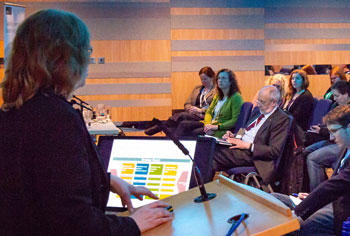
Whilst teaching microbiology in higher education, you may come across challenges such as keeping up to date with the current teaching environment or ensuring students are engaged. During this interactive symposium, delegates will have the opportunity to be part of a network, learn best practices and gain insights and information on issues affecting the teaching landscape.
The symposium will give delegates the opportunity to discuss teaching microbiology in higher education and troubleshoot individual challenges. The symposium will discuss elements of the framework of teaching, including degree structures and benchmarking. Topics to be explored include transitioning from schools into higher education and obstacles within postgraduate teaching.
Delegates will also benefit from practical examples of teaching and preparing for teaching students, as well as managing student expectations when it comes to independent learning. The day will conclude with the opportunity for delegates to share how the Society can better support teaching-active members. This symposium is aimed at anyone involved or interested in teaching in higher education and therefore is not restricted by career stage.
The ECM Forum Co-chairing Scheme provides ECM Forum members with the opportunity to be involved in the chairing of scientific sessions at the Annual Conference. The Co-Chairs will not receive any monetary value in co-chairing and will not take the place of a session Chair, but will receive a fantastic professional development opportunity to learn about being a session chair from more experienced colleagues.
ECM Forum members are eligible to apply. Applications should be made when submitting an abstract via Oxford Abstract. All applications will be reviewed by the Society's Divisions and successful Co-Chairs will be introduced to the relevant session Chair in February.
Co-Chairs will receive a letter of thanks from the ECM Forum Executive Committee confirming that they participated in the Co-Chairing Scheme, and will be recognised in the conference programme.
For questions about the ECM Forum Co-chairing Scheme, please contact [email protected].
In addition to the scientific programme, the Society will be hosting a series of Essential Skills sessions for all delegates wishing to enhance their professional skills in microbiology. Please book your space when registering for the Annual Conference – spaces are limited and complimentary when registering for the day.
Please note, although we ask all delegates wishing to attend professional development sessions to register their interest in advance, sessions will operate on a first come, first served basis. Please arrive with plenty of time to secure your place.
Monday 8 April 2019, 10:00-13:00
This session is aimed at helping you to understand what is required of a laboratory leader. The day will comprise a series of interactive workshops taking delegates through key skills involved with running a successful research group. These include – Managing Projects, Managing Assets, Health and Safety, and Managing People
Tuesday 9 April 2019, 10:00-13:00
Delegates will be presented with a toolkit for staying resilient in academia, before learning from the experience of those who have successfully negotiated challenges in their academic careers. This session is aimed at early career researchers and is also relevant to those who are considering changed fields, as moving fields also requires the ability to adapt to change.
Thursday 11 April 2019, 09:00-12:00
In this session, delegates will be introduced to the topic of research and publishing ethics, and what to do when you suspect research malpractice. This session is aimed at those who wish to take a proactive step in dealing with research ethics and therefore is not restricted by career stage.
Thursday 11 April 2019, 13:00-16:30
As well as showing delegates how to peer-review a paper, this interactive session will also show attendees what happens behind the scenes – what the Society’s Editorial staff do, and how peer reviewers are selected. This session is aimed at early career researchers but is also suitable for all those who are interested in learning how the Society manages peer review.
Thursday 11 April 2019, 13:00-16:30
Delegates will have the opportunity to find out the key elements to include in a standard and academic CV and will be given practical tips for making their CVs stand out. The session will end with an interactive workshop where delegates will peer-review each other’s CVs in groups – so make sure to bring a draft with you.
This session is suitable for anyone who is in need of feedback on their CV and therefore is not restricted by career stage.
The Annual Conference has been accredited by the Royal Society of Biology (144 CPD credits), the Royal College of Pathologists (29 CPD credits) and the Institute of Biomedical Science (category: Professional Activity).
Those wishing to claim CPD credits should sign a daily register held at the Professional Development information desk, which is located in the exhibition hall. Further information can be requested by email at [email protected].
The Microbiology Society Annual Conference is a key feature in the calendar of a microbiologist – from undergraduates to those more established in their career.
The scientific event is designed to provide ample opportunities for formal networking for both these groups at the meeting itself. Just as importantly however, the social programme offers informal opportunities for delegates to make new friends, forge future collaborations and have fun. Below you can find out more about the social programme for Belfast.
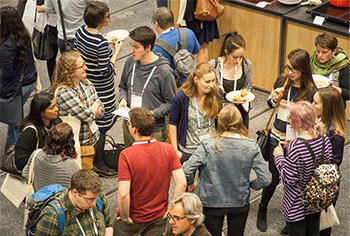
The Early Career Microbiologists' (ECM) Forum Executive Committee will be hosting an evening of interactive games and networking on the evening before the main event.
Participants will have the opportunity to take part in games and get to know other delegates, including senior members of the Society and ECM Forum members. This event will be a great way to meet potential collaborators and scientists from the breadth of the microbiology discipline and different career levels.
Whether it's your first time at Conference and you'd like to meet new people and brush up on your networking skills, or you'd just like to come and enjoy an evening of fun and socialising, be sure to join Sunday's networking event.
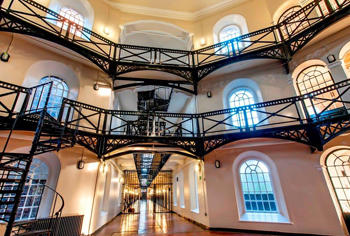
HMP Belfast, also known as Crumlin Road Jail, is a former prison situated on the Crumlin Road in north Belfast. It is the only Victorian-era prison remaining in Northern Ireland and is affectionately known as the Crum.
On the first night of Annual Conference, the jail will be opened exclusively for registered Microbiology Society delegates.
Over the years the jail has housed murderers, suffragettes, loyalist and republican prisoners. It has witnessed births, deaths and marriages and has been the home to executions, escapes, hunger-strikes and riots. Annual Conference guests will receive a glass of prosecco and canapés on arrival before going on a 70-minute guided tour to experience what life was like for these prisoners.
Delegates are welcome to make their own way to the venue; a coach will also be available to collect delegates from the ICC Belfast main entrance at 20:00 and returning after the tour is complete.
There are a limited number of places available for our Crumlin Rd Jail tour.
For those who have not yet registered, you can select this social option when registering for the main Conference.
Alternatively, for those delegates who have already registered and wish to add this social activity for themselves and their guests, please book your place online.
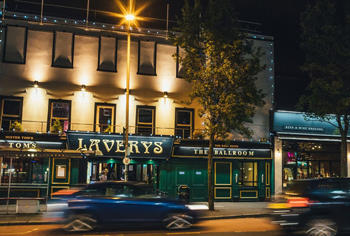
The annual quiz and games night will be taking place at Lavery's bar with its roof terrace and a private floor for Society members.
Lavery's is a traditional Northern Irish bar just 15 minutes from the main convention centre. The ever-popular annual quiz will start here at 20:30 with prizes up for grabs. Meet old and new friends and get together in teams of six+ to try to compete to secure the prized Society medal.
Once the quiz is over, don't let your competitive streak end – challenge colleagues and friends to shuffleboard or a variety of board games. Alternatively, make use of Northern Ireland's largest pool room with 22 high-quality and well-maintained pool tables.

Belfast is the perfect destination if you're looking to add a weekend on to the end of your Annual Conference.
Visit Belfast offers insider's guides to the best sights, shops, food and bars, as well as a range of tours taking in the cultural and historical highlights of Belfast and Northern Ireland.
Belfast is a very walkable city, and also has a useful public transport network provided by Translink. Explore the city with the help of a Belfast Visitor Map.

If you have missed out on exhibiting at this event there are still a number of sponsorship opportunities available to help promote your company to a key audience of over 1,400 delegates. Please email [email protected] today to discuss package options to suit you.
We also hold a number of other events throughout the year where you can exhibit or sponsor at. Full details can be found on our exhibitor and sponsorships page.
The exhibition is located in a high-traffic area, where all conference meals, coffee breaks and drinks receptions will be held, offering an excellent opportunity to showcase your products, interact with conference delegates and maximise leads.
You can choose from Gold, Silver and Bronze packages, or Pick and Mix options that can be tailored to your needs and your budget.
Detailed information about available exhibition packages can be found in the Exhibition and Sponsorship Pack, which can be downloaded below:

Annual Conference 2019 Exhibition Pack
To book your exhibition or sponsorship place, please download the fillable registration form below and return the completed form to [email protected].

Annual Conference 2019 Exhibition or Sponsorship Booking Form
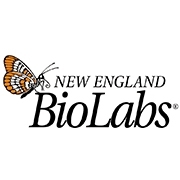
|
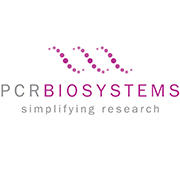
|

|
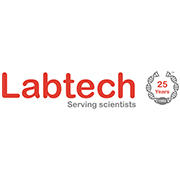
|

|

|
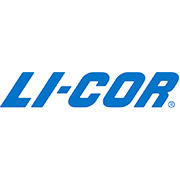
|
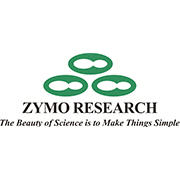
|
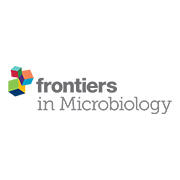
|
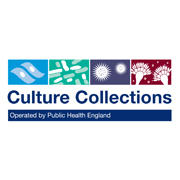
|
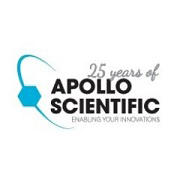
|

|
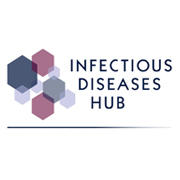
|
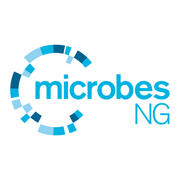
|
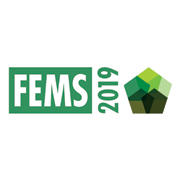
|
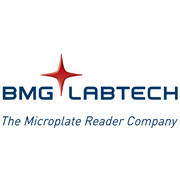
|
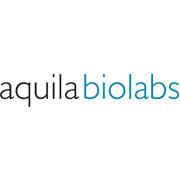
|

|
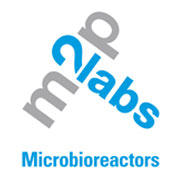
|
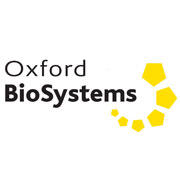
|

|
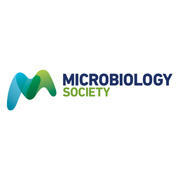
|
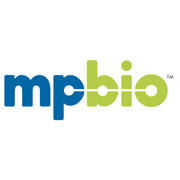
|

|
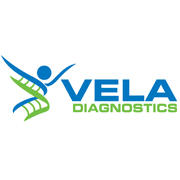
|

|

|
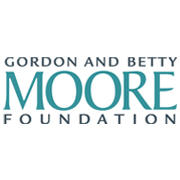
|
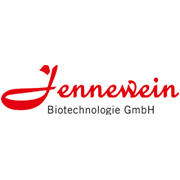
|
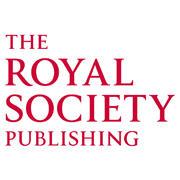
|
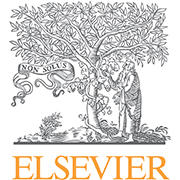
|

|
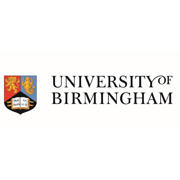
|